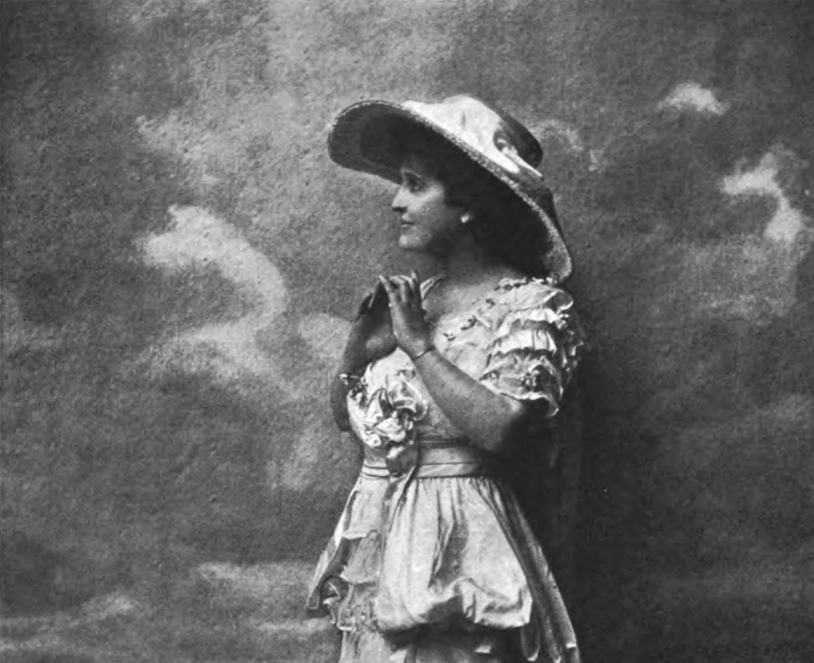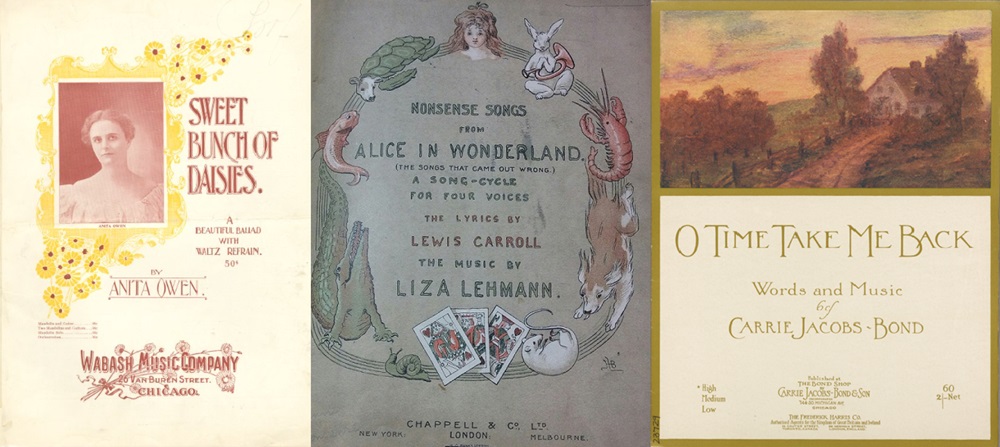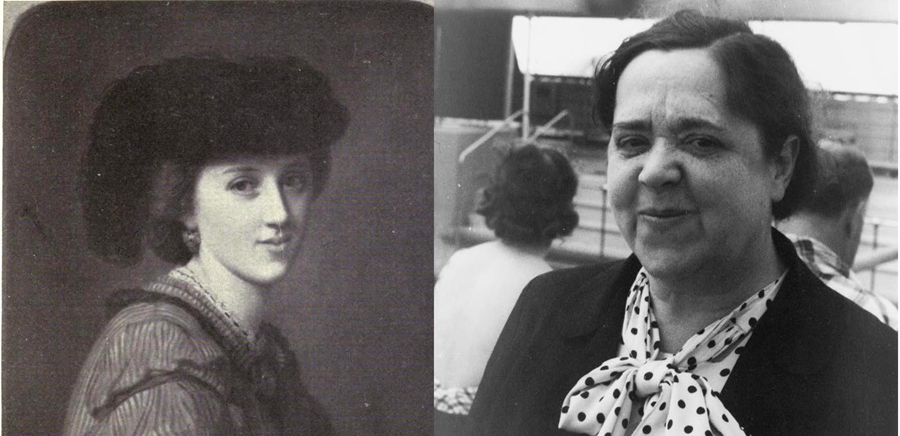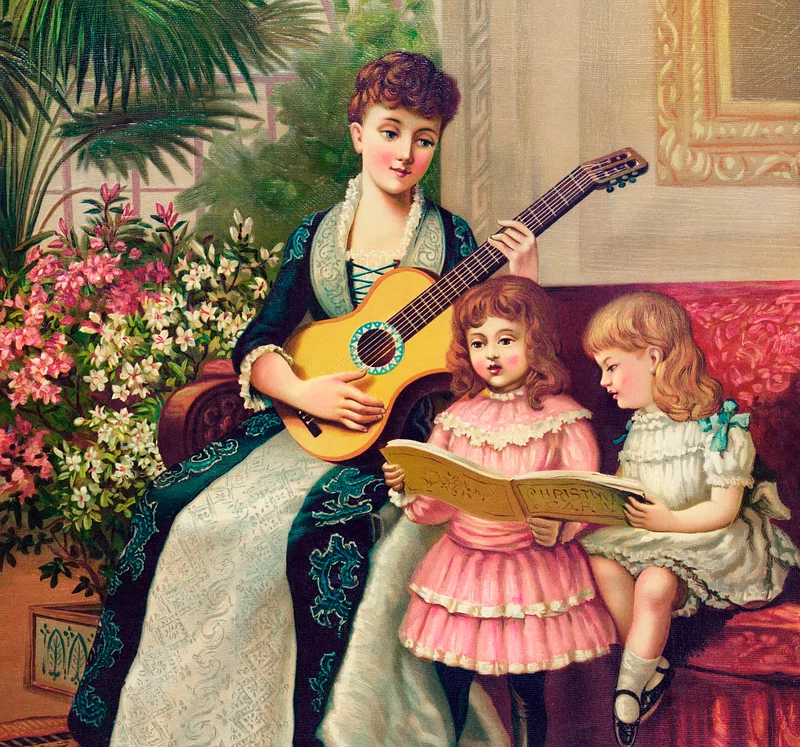During the half century following the Civil War, white southern women were at the forefront of aggressively pursued efforts to manage and mainstream antebellum South–friendly historical memory. These included white women who used the act of singing to further the project of “Redemption,” which sought to rewrite and nationalize the racial history of slavery, the Civil War, and Reconstruction from a southern perspective. Foremost among these singers was Kitty Cheatham (1864–1946), a white southerner who in the early twentieth century built a reputation across the United States and in Europe in part by satisfying the seemingly insatiable appetite for her renditions of Black vernacular song.
Born Catherine Smiley Cheatham, Kitty rolled out a southern Negro routine as early as February 1900, at a house party in New Orleans where guests attended in blackface versions of various Negro stereotypes, among them “a city and a plantation darky,” “an old street darky selling pralines,” and “a Creole nurse.” Cheatham’s “pickaninny dance” stole the show. By 1902, Cheatham was in England, where she befriended younger members of the royal family, making her name among London elites and American ex-pats as the daughter of a “distinguished Tennessee family” who sang “real negro songs, not the sort you often hear in London,” and told stories in Black dialect.
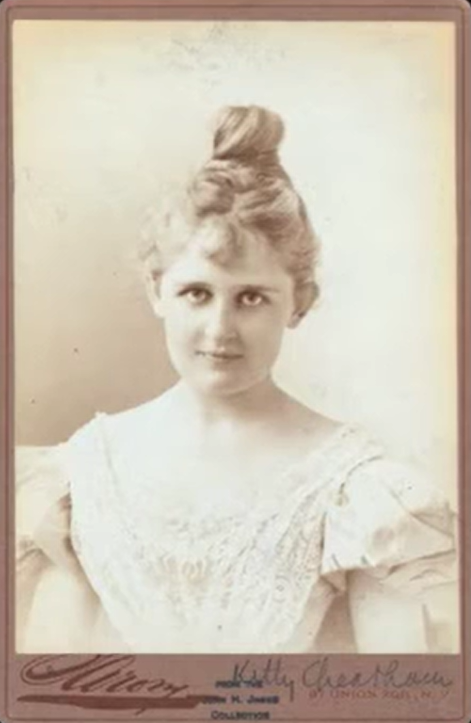
What the New York Times in 1902 described as Cheatham’s impressive “success as a singer of darky songs in English drawing rooms” only grew in the United States, where she returned to the professional stage with her specialty act. Cheatham’s setlist expanded to include sentimental English and French ballads, European concert repertory, and the children’s songs and stories for which she was, and still is, best known. But she was repeatedly billed as the woman “who gave Europe its first real taste of American negro songs” – despite the horde of Black jubilee groups that toured worldwide in the late nineteenth century, including the Fisk Jubilee Singers, who performed for Queen Victoria in 1873.
Still, Cheatham’s carefully cultivated stage presence did seem to set her apart for some audiences. Though the pleasure that her act delivered was indebted to the history and tropes of blackface minstrelsy, Cheatham’s performance practice also drew on the rituals and atmosphere of the recital hall and the salon. For some performances, a grand piano was set up on stage with a large chair placed nearby, though Cheatham’s Old South selections – including “Walk in Jerusalem Just Like John” and “Sinner Please Don’t Let This Harvest Pass,” which she recorded for Victor in 1916 – were often rendered unaccompanied, “really chanted more than sung,” with Cheatham “stating before beginning them that they are just as she heard the negroes give them on the plantations in the south.” This particular manner of performance and framing of the material led a San Francisco newspaper to propose that Cheatham, “telling quaint charming stories with the aid of melody,” very well “might be called the originator of this peculiar form of entertainment” (San Francisco Examiner, 31 Jan. 1913).
Indeed, reviewers sometimes struggled to capture what species of performer Cheatham actually was. In 1904, the Atlanta Constitution, rattling off four distinct forms of vocal performance, praised Cheatham as “not merely the singer or the reader, but she is the impersonator, the actress, as well.” Cheatham’s strategically crafted vocality helped broker her seemingly incongruous blend of “quaint, plantation darky songs,” as they were repeatedly characterized in the press, and the projection of refined artistry. Her “voice is light” but “with a sweet and agreeable quality,” one reviewer wrote, and above all it was legibly southern. Critics described how Cheatham’s “voice, which has a rich fluid, Southern quality about it, melts from a speaking tone to song imperceptibly, suggesting poise and sweetness, as if there were no such thing as hurry and irritability in all the universe” (San Francisco Examiner, 31 Jan. 1913).
Cheatham’s southernness was the most crucial, if also the most knotted, component of her racialized performances of preservation, which wielded a double-edged sword of proximity and distance. If Cheatham’s performances of Old South Black songs, and other set pieces of antebellum nostalgia like “Dixie Land,” and “I’se Gwine back to Dixie,” also recorded for Victor in 1916 but this time with instrumental accompaniment, professed to be acts of memory deeply rooted on the southern plantation, they were, she insisted, far removed from, perhaps even an antidote to, urban popular culture.
Her career unfolded with the exhilarating sound of ragtime and the derogatory but omnipresent coon song in the ears of many Americans and Europeans. Despite reports that she came out of retirement, in part, to “take advantage of the vogue for darky songs,” others understood that Cheatham was “determined to sing the real ones, not those doctored to suit the taste for highly flavored coon ditties.” Cheatham intended her expression of her Negro intimacy and pop-cultural estrangement to be a buttress against both the wrong kind of Black song and the wrong kind of Black people, on the one hand, redress for those who “thought that the darkies sang only ‘coon’ songs,” and, on the other, a lament of “the modern negro’s lack of interest” in their cultural heritage and underappreciation of the “rare qualities” of their enslaved ancestors.
One of Cheatham’s signature songs was what may be the most famous spiritual of them all, “Swing Low, Sweet Chariot.” It was part of her repertory from around the turn of the century – she performed the song during a 1904 performance at the Chicago Opera House – and again, unaccompanied, for her 1916 sessions for Victor in 1916, along with the spiritual “I Don’t Feel No Ways Tired.” Cheatham rephrased the song’s familiar refrain “I ain’t got long to stay here” as “I don’t want to stay here no longer,” and a reviewer was struck by how “the intoning of the melody and the long, sustained hum on the first syllable of the word ‘longer’ [gave] the number a peculiarly melancholy and weird effect.” We can hear this gesture on Cheatham’s Victor recording, and her idiosyncratic variant of the melody most of us know could be attributed to the vagaries of folk song transmission.
But micromanagement of Black difference can be seen as part of Cheatham’s implicit, and often explicit, sociopolitical strategy. As she told an interviewer in 1914:
Many of the negroes of to-day look back with contempt at the days of slavery. I do not want to be thought a defender of slavery, for it was an unfortunate condition. But it was the association with the Southern families that brought out the negro’s best qualities and resolved his wonderful spirituals. And the negro of that day was a fine type…. The negro of today must be made to realize the rare qualities which his forefathers expressed even in slavery. It was that which evolved these songs. (Musical America, 1914).
Cheatham was often hailed in her own time, even by many Black observers, as a fervent transatlantic champion of Negro spirituals. Yet, enthusiastically elevating “the negro of that day” at the expense of “the negro of today,” Cheatham also argued, rather unambiguously, that chattel slavery and “association with the Southern families” was a necessary evil with the net benefit of producing the type of African American subject conditioned to cultivate a cherished repertory of Black song. This spiritual-singing daughter of the Confederacy, performing preservation, rode broader political currents and social desires that carried her from private entertainment drawing on the legacy of blackface humor to influential and, unfortunately, durable redeeming testimony of Old South racial amity that sought to fix regressive meanings of African American culture for posterity.
Notes
The banner photo is from Kitty Cheatham’s article, “Reinforcing Democracy,” in The Craftsman 30/6 (Sept. 1916), 558. The photo is from Ira L. Hill’s Studio in Manhattan.
For more on Kitty Cheatham see:
“Kitty Cheatham Urges Fisk University Students to Preserve Old Spirituals,” Musical America (30 May 1914): 9.
Brian Moon, “The Inimitable Miss Cheatham,” Bulletin of the Society for American Music 32/2 (2006): 25–27.
Marian Wilson Kimber, The Elocutionists: Women, Music, and the Spoken Word (Urbana: University of Illinois Press, 2017), 136–49.


